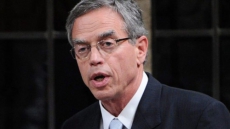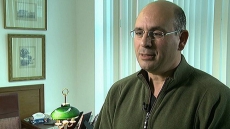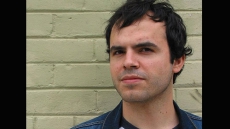OTTAWA — Veterans Affairs Canada has returned $1.13 billion to the federal treasury in unspent funds since the Conservatives came to power in 2006 — cash that critics say should have gone towards improved benefits and services.
The figure, which surfaced this week in the House of Commons, has led to renewed criticism of the Harper government, which is already smarting over its frayed relations with disgruntled former soldiers.
Data tabled in the House in response to a written question shows roughly one-third of the so-called lapsed funds were handed back between the 2011 and 2013 budget years when the government was engaged in a massive deficit-cutting drive.
The Conservatives often trumpet how much the budget for veterans care has gone up under their watch — right now it's about $3.4 billion a year, up from $2.8 billion when the Tories took office.
What they don't say is that anywhere between 4.7 per cent and 8.2 per cent of the total allocation has been allowed to lapse because of the department's inability or reluctance to spend it all, said NDP veterans critic Peter Stoffer.
Veterans Affairs Minister Julian Fantino met Wednesday in Quebec City with select organizations representing ex-soldiers, but some of the loudest critics of the department's spending on benefits and services were not invited.
On Tuesday, Stoffer put a pointed question about the lapsed funds to Fantino, who answered by tallying up the government's total spending on the veteran's department — roughly $30 billion since 2006.
"It means improved rehabilitation for Canadian veterans," Fantino said. "It means more counselling for veterans' families. It means more money for veterans' higher education and retraining. It means we care deeply about our veterans."
But that didn't answer the question of why so much of the budget has been allowed to lapse, said Stoffer, noting that the overall budget of the department is something the government is committed to under the law.
The use of lapsed funding to reduce the federal deficit is an exercise that's being practised across all departments, he added.
"The deputy ministers ... have obviously been told by the higher-ups that, 'This money has to come back to us in order for us to have our books balanced, and that way we can use that money for other purposes, like income-splitting.'"
Over the last two fiscal years, all federal departments allowed more than $18 billion in budgeted funding to lapse, according public accounts figures released at the end of October.
Frank Valeriote, the Liberal veterans critic, said ex-soldiers who've been denied benefits will look at the unspent funds and feel "hoodwinked, completely abandoned" and wonder why they've made sacrifices for their country.
"It is reprehensible and unconscionable what they're doing so that the government can create an image of fiscal responsibility," he said.
A spokeswoman for Fantino said late Wednesday that the department must have resources to pay for benefits and medical treatment, and that when there is a "few per cent overage" the "unused (cash) is reinvested into the following year's budget process."
Ashlee Smith said the opposition knows the procedure is a "long-standing parliamentary tradition" and accused them of playing political games.
The Quebec City meeting came on Wednesday at a time when multiple Conservative sources say there is concern that the party's reliable support in the veterans community is bleeding away because of the loud and prolonged battle.
The sources, speaking on condition of anonymity, say there is growing frustration within the party over Fantino's apparent inability to forge positive relationships with veterans, unlike his predecessor, Steven Blaney.
Beyond veterans, long considered a natural constituency for Conservatives, there are signs the Tories are in trouble with ordinary Canadians on the issue. A newly released internal poll on public perceptions of the Canadian Forces suggests the treatment of veterans was registering strongly with respondents.
"Problems that veterans face (42 per cent) and soldiers returning home (29 per cent) were top of mind for many Canadians when asked what they recalled about the (Canadian Armed Forces)," said the Phoneix Strategies Perspectives survey, conducted last May, but released by National Defence online this week.
The survey of 2,025 people found more than two-thirds (67 per cent) of those asked recalled recently seeing, reading, or hearing about issues faced by returning soldiers or their families.
That's a significant increase over 48 per cent of respondents to a similar poll conducted in 2012.






